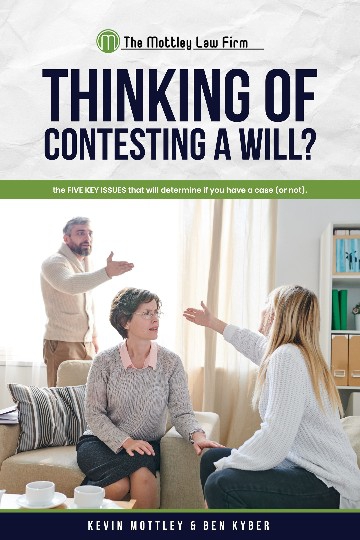- Failure to Adhere to Formalities: A will may be invalid if the testator did not adhere to the proper formalities required under Virginia law. Generally speaking, a will must either be entirely in the testator's handwriting and signed by testator or signed by the testator in the presence of two competent witnesses who also signed the will in the testator's prescence. If a will does not meet those requirements, it may not be valid. However, relatively recently, Virginia enacted a "saving statute," which allows for a proponent to establish a non-compliant writing as a decedent's will if they prove by clear and convincing evidence that the testator intended it to be their will. The "saving statute" cannot be used to probate a writing not signed by the testator, which is always invalid. It also requires that the proponent of the non-compliant writing file a lawsuit to establish it within a year of the testator's death. Nevertheless, the "saving statute" may now make it more difficult to contest a will that does not adhere to the proper formalities.
- Lack of Testamentary Intent: For a document to be a valid will, the decedent must have intended for it to dispose of his property after he died. Therefore, a document that provides for gifts of property to be made during the decedent's lifetime is not a will. If such a document is probated, it can be contested based on the decedent's lack of testamentary intent.
- Revocation: Under Virginia law, a will can be revoked in one of two ways: (1) the testator may execute a later will that expressly revokes an earlier will, or (2) the testator may cut, tear, burn, obliterate, cancel, destroy, draw lines through, or intentionally write over the will, with the intent to revoke it. If a will that was revoked by the testator has been probated, the testator's revocation of the will provides grounds to contest it.
Disinheritance Is Not a Ground for Contesting a Will, but You May Have Options
We often receive phone calls from prospective clients who want to know if a will can be contested solely because their family member did not leave anything to them. Unless other grounds exist for contesting the will, the answer is no. There is no requirement, under Virginia law, that a testator make any provision in their will for particular family members. That said, sometimes certain family members may be entitled to a portion of a decedent's estate even if no provision is made for them in the will. That is especially true for surviving spouses, who are usually entitled to claim something called an "elective share" of the decedent's estate. If you believe you may have such a claim, it is important to contact an attorney as soon as possible, as such claims are often subject to strict time limits.



